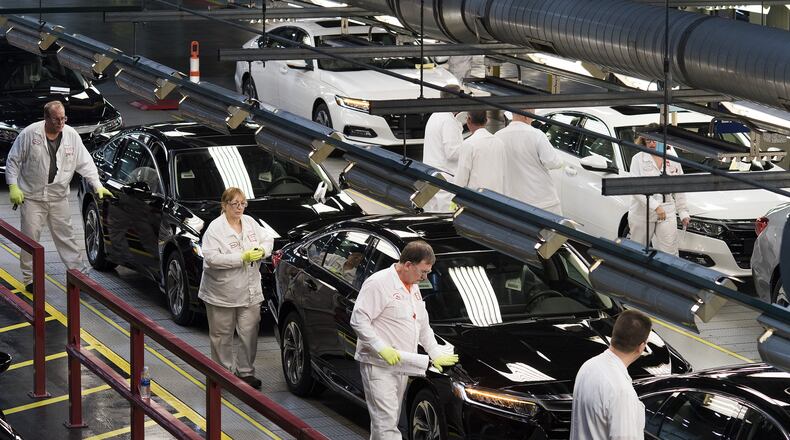The change also sets up a potential fight with the state of California, with the Trump administration insisting it has the power to eliminate California’s waiver to create its own rules.
RELATED: Report: Ohio, and Dayton area, are manufacturing powerhouses
The new proposal is still subject to a 60-day public comment period, but it dramatically lowers once-expected longer-term requirements through the year 2026.
Reactions to the administration’s moves are coming in:
“This was a predictable move, as the current administration has been working hard to dismantle Obama-era regulations across the board,” said Michelle Krebs, executive analyst of Autotrader. “And while there’s little demand today for smaller, more-efficient or electrified vehicles in the U.S., as gas prices remain low, these lower fuel economy targets proposed by the administration will likely spark an unwanted war between Washington and the California Air Resources Board.”
MORE: Former Teradata leader brings big data to law enforcement
“This is a huge shift in regulatory oversight, and while it initially looks like a benefit for automakers, it will likely add a level of uncertainty none of them want,” said Karl Brauer, executive publisher of Autotrader and Kelley Blue Book.
“Producing and selling automobiles is a long-term process. It requires long-term planning that can’t easily be modified without costing car companies a lot of money. Government policy changes are similarly protracted, often requiring years to resolve. This combination will keep courtrooms busy and boardrooms nervous for the foreseeable future,” Brauer said.
“While many environmentalists will see this move as an attack, the reality is sales of hybrid and electric vehicles are not growing, even with incentives on the vehicles and home chargers and the like,” said Rebecca Lindland, executive analyst, Kelley Blue Book.
“If and when consumers demand more fuel efficiency from their vehicles, or we finally get a noticeable gas tax, OEMs (original equipment manufacturers) will build them,” Lindland also said.
She added that “smart” automakers will continue to develop electric vehicles and hybrids.
About the Author

